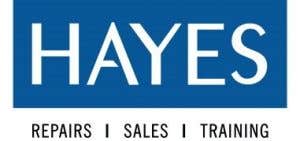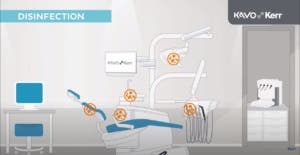What is Dental Instrument Processing & Infection Control?
What is instrument sterilization and infection control processing in dentistry?
Sterilization of dental instruments is not a purely modern concept. From the time Pasteur developed the germ theory in the 1860s, dentists have been looking for ways to ensure that their equipment can be reused safely on multiple patients. In the 1880s Chamberland’s Autoclaves introduced its first steam autoclave specifically designed for sterilizing surgical instruments and other hospital apparatus which was much more effective than boiling or cyanide-based methods at eradicating bacteria from objects exposed to it under pressure or after long periods of exposure. 130 years later we also got additional heat-based sterilization techniques like electron beam irradiation with hydrogen peroxide treatment as well as improved technology behind our autoclaves such as turbidity monitoring systems improving upon an already impressive 99% success.
According to the New York University , dental sterilization and instrument processing is the killing or rendering of inactive microbial organisms. The dental sterilization process can be complicated, but you need to know what is best for your patient. Sterilizing dental instruments and processing them for infection control includes many different methods such as steam heat and chemical agents.
Why is dental instrument and infection control processing important?
Your dentist’s office is full of busy people. Your dental staff is always trying to get through a long list of patients and their treatment plans, but they have not forgotten the importance that patient safety plays in every procedure.
The cleanliness of instruments used in oral surgery or other dental procedures is extremely important, as a single dirty instrument could lead to dangerous infections. If the materials are not properly cleaned and sterilized for use on patients, there’s always a risk that one will be exposed to bloodborne pathogens or develop an infection themselves. It’s crucial that HCWs follow all steps carefully so they can provide adequately cleaned tools destined for patient care with high-level disinfection/sterilization completed before each procedure begins.
When it comes to patient safety, there are a few rules that dentists can’t afford to break. Of course, the most important is sterilization practices- but let’s talk about how good instrument processing will do more than just prevent infection in your patients. It’ll also protect you and any other staff members from harm as well! As simple as this may sound, understanding all of these elements at work together leads to a systematic way of doing things: methodical procedures with every step laid out for easy learning. This ensures success not only when dealing with instruments themselves but also during case preparation or if something goes wrong halfway through a dental appointment.
The CDC has outlined two objectives for the sterilization of dental instruments:
- Provides basic infection prevention principles and recommendations for dental health care settings . The threat of oral infection is constant in the world around us. In most cases, this contact leads to barely any discomfort or pain at all. But for those who are vulnerable and have compromised immune systems, it can be disastrous – leading to a whole host of medical problems that may not go away without treatment and attention from dental professionals like yourselves.
- Reaffirms Standard Precautions as the foundation for preventing transmission of infectious agents during patient care in all dental health care settings . The American Dental Association and the Centers For Disease Control and Prevention (CDC) recommend adherence to universal precautions because they are an important way to prevent infection from spreading. Universal means that we should be using these procedures with every single person who comes into contact with us- whether or not it is a child, adult, male or female, doesn’t matter! It’s also helpful if you think about how many people come within close proximity of your mouth while you work on them- so applying preventive measures like gloves can help cut down on cross-contamination immensely. It is also a reminder that we are responsible to make sure patients are safe and healthy, not only from ourselves but also from other staff who come into contact with them.
Summary
Your dental staff must be very careful when preparing dental instruments for their next use. They do this by following a strict process to see if they’re sterile before reusing them. This is not as easy as it sounds because there are many different types of dental instruments, handpieces , and equipment that need to go through every step meticulously, or else you could risk spreading disease agents from one patient onto another -or worse yet, into your own body.
Hayes Handpiece has a seasoned and knowledgeable team in dental instrument and infection control processing. We offer a variety of courses for dentists, hygienists, dental assistants, and other professionals in the field. We have extensive knowledge of all things related to dental care, so we can help you with any questions or concerns about your practice. Our goal is to provide the best service possible while helping you maintain a safe environment for patients.
With our professional guidance, you’ll be able to improve efficiency and safety in your office by taking care of your instruments properly. You won’t have to worry about the infection spreading from one patient to another because we will show you how cleanliness is key when it comes to preventing disease transmission. And don’t forget that if there’s anything wrong with your equipment, we’ll take care of it! All this without having to spend hours on research online or calling around town for what you need!
Contact Hayes to book a Dental Handpiece & Instrument Sterilization and CDC Infection Control Training for you and your team.
For our other list of in-house and online training, you may also visit the links below:
- CDC Dental Guidelines and Infection Control
- Dental OSHA Training
- Dental HIPAA Training
- CE Credits In-House Training
Hayes specializes in various dental handpiece repairs and dental instrument sharpening and re-tipping. Our experienced technicians have decades of experience working with all major brands of dental handpieces including:
A-dec | Beyes | Bien Air | Denticator | Hall | Henry Schein | Impact Air | Kavo | Lares Midwest | Morita | Nobel Biocare | Nouvag | NSK | Patterson | Schein Master
Shamrock | Star | Strauman | Stryker | W&H | Young
American Eagle | HU Friedy | Nordent | PDT




